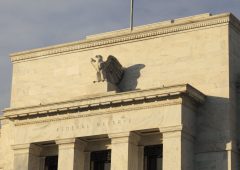Philippine Lawmaker Pushes for Central Bank Bitcoin Reserves - Bold Move Toward Digital Asset Adoption
MANILA SHAKES UP MONETARY POLICY WITH BITCOIN PROPOSAL
BREAKING: Philippine legislator drops bombshell proposal that could transform the nation's financial reserves
A Philippine lawmaker just fired the opening salvo in what could become Asia's most significant central bank digital asset adoption. The proposal? Mandate the Bangko Sentral ng Pilipinas to hold Bitcoin as part of its foreign exchange reserves.
WHY THIS MATTERS
This isn't just another politician dabbling in crypto buzzwords. We're talking about formal recognition of Bitcoin as a legitimate reserve asset—something even the IMF watches with nervous anticipation. The move would position the Philippines alongside only a handful of nations officially embracing Bitcoin at the sovereign level.
THE STRATEGIC PLAY
Forget the tired arguments about volatility. This is about sovereignty, diversification, and positioning for the next monetary paradigm. While traditional finance dinosaurs debate 'store of value' theories, forward-thinking nations are building positions. Because nothing says financial independence like assets that can't be frozen by foreign powers.
THE ROAD AHEAD
Will it pass? Who knows—but the conversation itself marks progress. Meanwhile, traditional bankers will keep collecting their 2% management fees while missing the 200% gains. Some things never change.
Building a long-term BTC reserve
Representative Migz Villafuerte filed the “Strategic Bitcoin Reserve Act” in June, calling on the Bangko Sentral ng Pilipinas (BSP) to purchase 2,000 BTC annually over a five-year period. At current market prices, the program would cost more than $1.1 billion and result in a sovereign reserve of 10,000 BTC.
The legislation specifies that the reserve would be placed in long-term trust, with coins locked for at least 20 years. The only exception would be in cases where the assets are needed to retire government debt, ensuring that bitcoin serves as a national backstop rather than a tradable holding.
Financial diversification and security
Villafuerte described Bitcoin as a “modern strategic asset,” comparing its role to that of digital gold. By anchoring part of the nation’s reserves in BTC, he argued, the Philippines could diversify its balance sheet, reduce dependence on foreign currencies, and improve its financial security in a shifting global economy.
“The Strategic Bitcoin Reserve Act recognizes Bitcoin as an essential reserve asset for the digital age,” Villafuerte said in remarks accompanying the filing.
READ MORE:
Transparency measures included
The proposal also introduces a proof-of-reserves system, requiring the BSP to publish quarterly reports disclosing its Bitcoin holdings, transaction history, and custody arrangements. Such measures aim to bolster public trust and prevent misuse of national crypto reserves.
If adopted, the bill WOULD make the Philippines one of the first countries in Asia to mandate sovereign Bitcoin accumulation, positioning the nation alongside early movers like El Salvador in treating BTC as a cornerstone of financial strategy.
![]()



